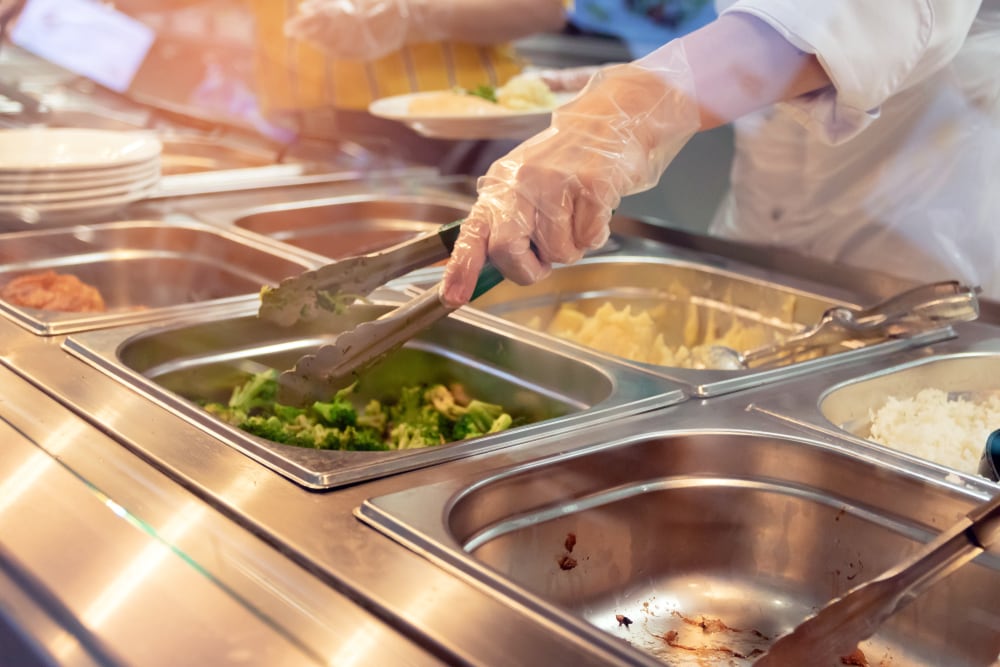
The Importance of Choosing the Right Caterers: Creating a Positive Food Culture in Schools
In the world of education, every aspect of a student’s experience matters. From the quality of teachers to the condition of the facilities, each element plays a role in shaping a positive and enriching educational environment. Among these, one often underestimated yet crucial factor is the quality of school food. It is not just about nutrition; it is about creating a positive food culture that promotes diversity, inclusivity, and education. In this article, we will delve into the significance of establishing a positive food culture in schools, the role of the right caterers in achieving this goal, and the challenges and trade-offs associated with different approaches.
The Power of Food Culture
Food is a universal language. It brings people together, transcending cultural, social, and economic boundaries. In schools, food plays a pivotal role in shaping the daily experiences of students. A positive food culture fosters an environment where students not only eat but also learn, explore, and appreciate the diverse world of culinary delights.
Creating a positive food culture in schools is more than just serving meals; it is about:
Nutrition: Ensuring that students have access to balanced and nutritious meals that support their growth, development, and overall well-being.
Diversity: Introducing students to a wide range of cuisines and flavours, opening their palates to the world’s culinary diversity.
Inclusivity: Providing options for students with dietary restrictions, allergies, and preferences to ensure that everyone feels included and catered to.
Education: Teaching students about the importance of healthy eating, where their food comes from, and the cultural significance of different dishes.
Sustainability: Promoting eco-friendly food practices, reducing food waste, and sourcing ingredients responsibly.
A positive food culture creates an environment where students look forward to mealtime, fostering a sense of community and well-being. It is about more than just eating; it is about nourishing the body, mind, and soul.
The Role of Caterers in Shaping Food Culture
Caterers in schools play a vital role in shaping the food culture. They are not just meal providers; they are educators, cultural ambassadors, and facilitators of positive experiences. Here’s how the right caterers can contribute to creating a positive food culture:
Nutritional Expertise: The right caterers have the knowledge and skills to provide balanced and nutritious meals that meet the dietary needs of students. They understand the importance of incorporating fresh, local, and seasonal ingredients.
Diversity and Inclusivity: Caterers can introduce students to a diverse range of dishes, promoting cultural awareness and inclusivity. They should offer options for students with dietary restrictions, ensuring that no one is left out.
Food Education: Caterers can collaborate with schools to provide food education programs, teaching students about the origins of their food, the benefits of healthy eating, and the environmental impact of food choices.
Sustainability: Caterers can adopt eco-friendly practices in food sourcing, preparation, and waste management, instilling a sense of responsibility and sustainability in students.
Collaboration: Caterers can work closely with schools to tailor their services to the unique needs and preferences of the student body, fostering a sense of ownership and community.
Trade-offs: Outsourcing vs. In-House Catering
One of the key decisions that schools face when shaping their food culture is whether to outsource catering services or manage them in-house. Each approach has its advantages and challenges, and the decision depends on the specific needs and circumstances of the school.
Outsourcing Catering Services:
Pros:
Expertise: Outsourced caterers often bring a high level of expertise in nutrition, culinary skills, and food safety.
Cost Management: Schools can manage costs more effectively, as catering services are usually provided under a fixed contract.
Variety: Caterers can offer a wider range of menu options and introduce students to diverse cuisines.
Cons:
Loss of Control: Schools may have limited control over the menu and food sourcing.
Quality Assurance: Ensuring consistent quality can be challenging, as it relies on the caterer’s performance.
In-House Catering:
Pros:
Control: Schools have full control over the menu, ingredients, and meal preparation.
Customisation: Menus can be tailored to the unique preferences and dietary requirements of the student body.
Community Building: In-house catering can foster a sense of community and collaboration among staff and students.
Cons:
Resource Intensive: Managing in-house catering requires significant resources, including hiring and training kitchen staff.
Expertise: Ensuring high-quality nutrition and diverse menu options may be challenging without culinary expertise.
Challenges in Creating a Positive Food Culture
Establishing a positive food culture in schools is not without its challenges. Schools often face obstacles such as:
Budget Constraints: Limited budgets can restrict the ability to source high-quality, nutritious ingredients and provide diverse menu options.
Resistance to Change: Changing the existing food culture and introducing new dishes can be met with resistance from students, staff, and parents.
Food Waste: Managing food waste is a critical issue. Schools must find ways to minimise waste and promote sustainability.
Regulatory Compliance: Complying with health and safety regulations, as well as dietary guidelines, can be complex.
Communication: Effective communication with students and parents about the changes in the food culture is essential to gain their support.
Success Stories: Schools Embracing Positive Food Culture
Many schools have successfully embraced a positive food culture, and their stories serve as inspiring examples. Here are a few success stories:
A multi-academy trust in the North East transformed its food culture by emphasising organic, locally sourced ingredients and culinary education. The result was healthier, diverse, and more sustainable meals for students.
The “Chefs in Schools” Initiative in the UK: This initiative brought professional chefs into schools to work with in-house catering teams. They introduced new cooking techniques, ingredients, and menu options, revolutionising the food culture in participating schools.
Farm-to-School Programs: Many schools across the UK have embraced farm-to-school programs, connecting local farmers with school cafeterias. These programs support local agriculture, reduce food miles, and provide fresher, more nutritious meals to students.
Education Buying's DPS: Supporting Positive Food Culture with Social Value
Education Buying’s Dynamic Purchasing System (DPS) plays a crucial role in supporting schools in their quest to create a positive food culture. Our DPS emphasizes social value, ensuring that the catering services not only meet nutritional needs but also contribute to the well-being of students and the community.
By collaborating with a network of pre-vetted suppliers, Education Buying’s DPS offers schools access to catering services that align with the principles of a positive food culture. These suppliers are committed to diverse and nutritious menus, food education, and sustainability.
In Conclusion
Creating a positive food culture in schools is more than just serving meals; it is about fostering an environment where students can grow, learn, and appreciate the diversity of the culinary world. The right caterers play a pivotal role in achieving this goal, whether through outsourced services or in-house management. Success stories from schools worldwide showcase the transformative power of a positive food culture.
Education Buying’s DPS is a valuable resource for schools committed to this cause. By prioritising social value, it ensures that catering services not only meet dietary requirements but also contribute to the holistic well-being of students. Food is not just nourishment; it is an essential part of the educational experience. Creating a positive food culture is an investment in the future, one plate at a time.





